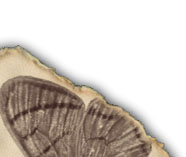|
- Clove (Eugenia Caryophyllata):
- translation: Eugenin; Caryophyllin.
synonyms: Eugenia Aromatica, Caryophyllatus Aromatica.
definition: dignity.
The first references to cloves are found in Oriental literature of the Han period in China, under the name “tongue spice.” Courtiers were required to hold cloves in their mouths while addressing the emperor during the Han dynasty, to sweeten their breath. From the eigth century on, cloves became one of the major spices in European commerce. The name clove is derived from the French word “clou,” meaning nail, due to the shape of the bud. During the late Middle Ages, cloves were used in Europe to preserve, garnish, and flavour food. Clove cultivation was almost entirely confined to Indonesia, but in the early 17th century the Dutch eradicated the cloves on all islands except Amboina and Ternate in order to create scarcity to sustain high prices. In the 18th century, seeds of the clove tree were stolen by French traders from the Dutch, to break the Dutch monopoly. The cloves were smuggled from the East Indies to Indian Ocean islands and the New World. The Danish medieval herbalist H. Harpenstreng, and other herbalists of the time, asserted that cloves “makes the man desire the woman.” Once worn in amulets, cloves are said to drive away megativity and hostility, and to stop gossip. It was also carried to stimulate the memory, and was said to bring comfort to the bereaved and mourning, it was also placed in sachets with mint and rose to chase away melancholy and to help one sleep soundly. Cloves aid in digestion by stimulating circulation as well as flavouring food, and are the most stimulating and carminative of all aromatics. They are given in powder or infusion for rhematism, arthritis, nausea emesis, colic, flatulence, languid indigestion and dyspepsia, and used cheifly in the assistance of other medicines. In teas, it is recommended for relieving nausea, upset stomachs, gas, coughs, congestion, and sore throats. The medical properties reside in the volatile oil, which must be kept in dark bottles to preserve its potency. It is a strong germicide, a powerful antiseptic, and as a feeble local anaesthetic applied to decayed teeth. It is very useful for treating cholera, boiled in water and taken in draughts. It has also been used with success as a stimulating expectorant in phthisis and bronchial troubles. Cloves are also said to relieve fatigue and melancholy. If the dose is too large, cloves can lead to minor skin irritations and upset stomachs, ranging to blood abnormalities and central nervous system depression.
~Print and Play~
|

